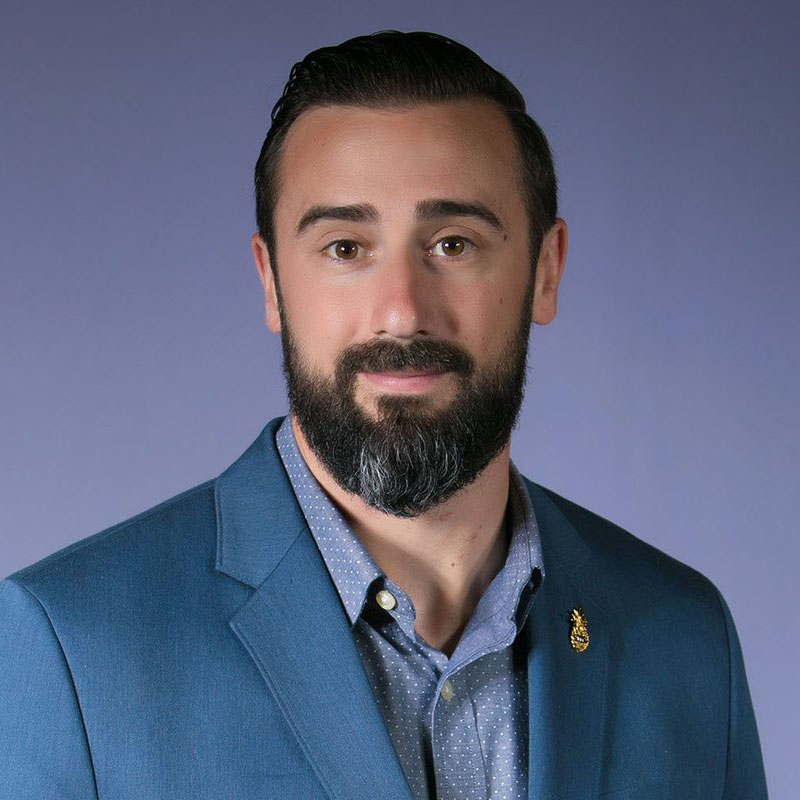
A critical step in developing sustainable destinations is a strong workforce development program. This blog highlights common frameworks for workforce development and speaks to the need to align community, industry, and higher education to level up the skills of future employees. Expanding beyond frameworks, this blog aims to inspire ways that we, as an industry, can change the perceptions of Hospitality and Tourism careers.
Each destination will approach workforce development differently. It is a complex and multi-faceted topic where general frameworks can apply in a variety of specialized ways depending on the needs of the location. In general, workforce development strategies should include an ongoing assessment of skills and training desired by industry as well as a flexible education model that can address knowledge gaps in the workforce. Ukraine provides a great example of this as recently, the government began leveling up their tourism sector through a gap analysis of the education system, recent graduate knowledge base, and the needs of employers. This assessment paved the way for improvements to the education system, re-imagining higher education curricula, and designing specialized professional education programs for workers to level up their skills (you can read more about this process here).
When we look at tourism as a job creator, the statistics often highlight the number of jobs that are supported by our industry; most of the time, the number is significant. Recently, it was reported that tourism contributes nearly $2 trillion in economic outputs to the US GDP and supports approximately 9.5 million jobs. On the surface, these are some outstanding statistics. However, as someone who regularly meets with young people to discuss career opportunities in our industry, the perception is often that the roles available are frontline positions that don’t necessarily require a higher level of education or credentialing. The reality is that their perception is not wrong, with some sources highlighting that 80-90% of hospitality jobs are considered to be front line. Compounding the negative perceptions of career opportunities in this space is the high rate of turnover for these roles, clocking in at almost 74% annually.
As we advance as an industry, shifting the general public's perceptions about careers in tourism and hospitality is paramount. This is where workforce development programs can play a critical role. With the DMO leading the efforts around the assessment phase, workforce development can take center stage with the destination. DMOs are uniquely situated to be the conduit between business needs, education offerings, and local knowledge. Speaking from my perspective in the higher education space, participating in an assessment phase that identifies knowledge gaps in the area would be a critical element to future curriculum development. Unifying all the internal stakeholders in a destination to buy into true needs assessments is a massive first step in changing perceptions of careers in our industry, opening new possibilities in terms of education offerings at the grade school and higher ed levels, and training the future leaders of our industry based on the needs of the employers in our own backyards. Some great research has been recently published highlighting the need for workforce development programs to collaborate with the higher education sector, like this article, to create adaptive curricula that meets the needs of industry while preparing students.
Like many destinations throughout the US and abroad, here in Rhode Island, there are a variety of conversations currently happening to level up workforce development efforts to provide opportunities to explore the dynamic field of tourism and under the broad and diverse career paths our industry offers. Here are a few ways that Johnson & Wales University is collaborating with industry to prepare our future tourism leaders:
Experiential Learning
Considering how dynamic the field of tourism is, a classic 120-credit college curriculum just isn’t enough. Over the past year, we have collaborated with local tourism boards and DMOs along with municipal organizations like Providence Parks Department to embed project-based learning into coursework. From community engagement to food trail development to podcast production, these opportunities aim to address critical skills required by the industry that aren’t typically the focus of the degree curriculum.
SME Symposiums
Bringing industry leaders to campus for guest lectures is always a great way to align course content with real-world applications. During these opportunities, we also make sure to discuss career paths, employer needs, and how students can prepare during their college years to step directly into dynamic roles based on industry needs.
Sustainability as a Cornerstone
To change perceptions of careers in tourism and hospitality and properly prepare students for what they will see in the industry, sustainable tourism principles and community-based tourism are cornerstones of our programming. Making a difference with their work and finding career options aligned to sustainability is in high demand with the younger audience. Tourism is the perfect field to showcase how elements combine to create meaningful opportunities.
While there is still a long way to go in creating robust pipelines of future tourism leaders who are ready to launch into amazing career paths dedicated to sustainable tourism, the fact that these conversations are going on is a leap forward. There is a natural synergy between young populations looking to make a difference, higher education institutions, community development organizations, and destination leadership. The more we can collaborate on ways to incrementally level up knowledge of what a career in tourism and hospitality means, the better off we are all going to be throughout the destination. I would encourage you to reach out to your local colleges and hospitality programs to start the conversation around needs assessment and find those golden threads that have the potential to change the perceptions of career pathways in our industry.
Submit Your Thought Leadership

Share your thought leadership with the Destinations International team! Learn how to submit a case study, blog or other piece of content to DI.


